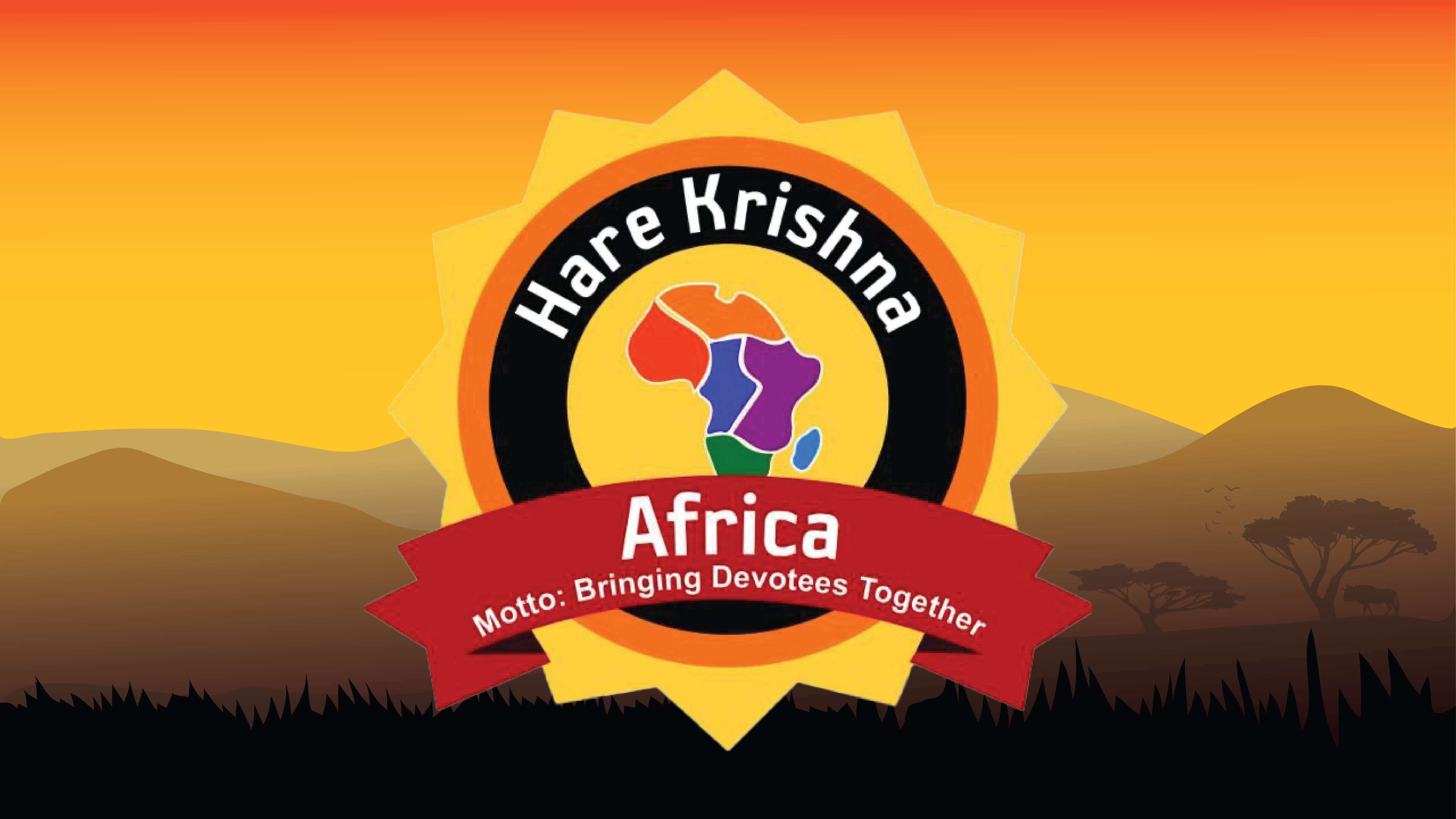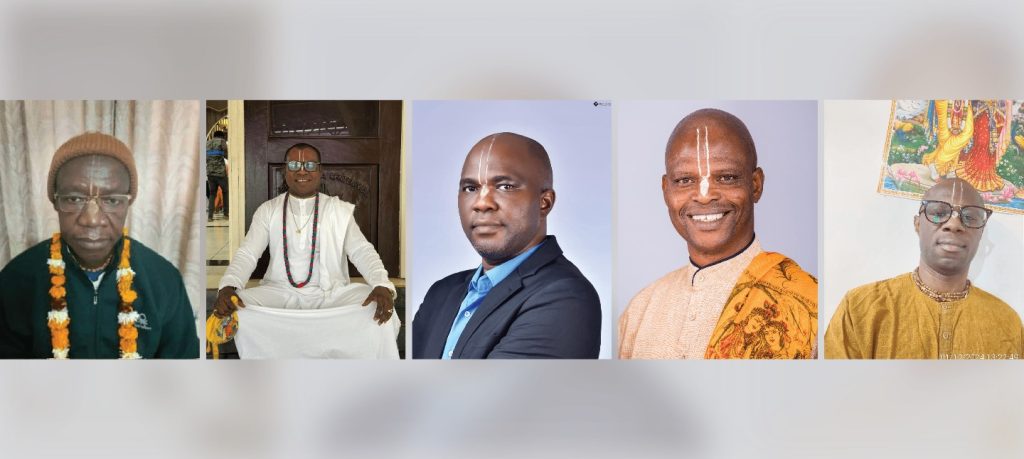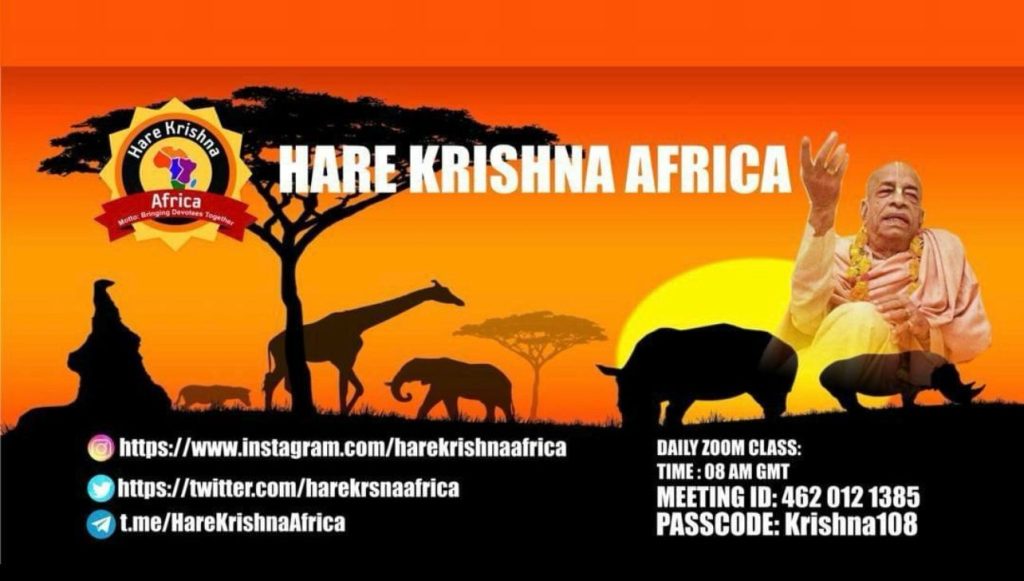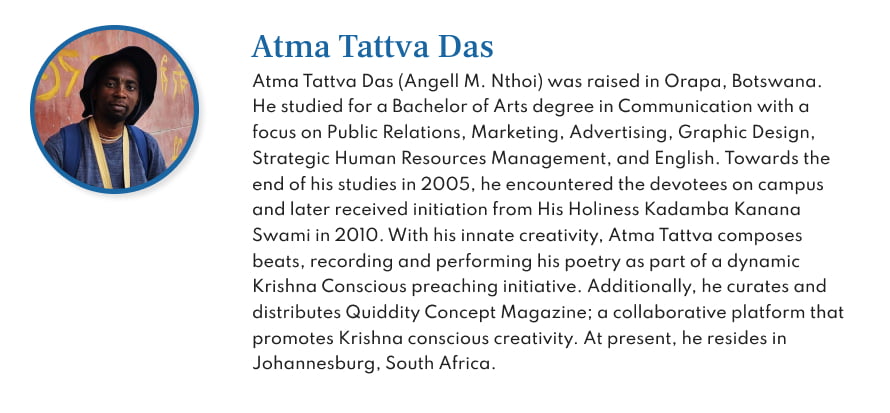Hare Krishna Africa: Nurturing Devotional Roots Across the Continent
By Atma Tattva Das, ISKCON News Staff Writer | Jan 14, 2024

Spurred by the challenges of the COVID-19 pandemic, the Hare Krishna Africa (HKA) platform has evolved into a transformative online and in-person network of African devotees. This innovative network utilizes social media, Zoom calls, and strategic cross-border connections to serve collaboratively on various issues facing ISKCON communities across multiple countries. Initiated by the visionary minds of Srivas Das Vanacari, Kusha Das, Jnana Caksusa Das, and Kavikarnapura Das, the HKA platform transcends physical borders and economic classes, shaping a narrative as diverse as the continent it encompasses.
As we delve into the depths of the Hare Krishna Africa platform through an enlightening ISKCON News interview with team members Salika and Sahadev, the significance of this initiative comes to light. Rooted in the desire to unite devotees beyond the historical complexities of colonial Africa, the platform aims to break the isolation that often hinders spiritual growth. Sahadev notes, “We’re all aiming at pleasing Srila Prabhupada, and so, regardless of our backgrounds, we become one family.”
After establishing the Bhaktivedanta College of Education and Culture in West Africa, accredited by Mayapur Institute, with a specific focus on ensuring sturdy growth in the region, the lockdown forced a paradigm shift. What was initially a localized educational experience bloomed into an online phenomenon through the Hare Krishna Africa forum. Despite the challenges, this move resulted in a colossal success, attracting a myriad of students who found spiritual nourishment and academic enrichment through the virtual platform.

Hare Krishna Africa Team Members (left to right) Srivas Das Vanacari, Jnana Caksus Das, Kavikarnapura Das, Salika Das, and Sahadeva Das.
One of the pivotal moments in the platform’s journey unfolded during a Training and Development session with the United Nations. Salika, with palpable enthusiasm, shed light on the session’s importance, describing it as a profound experience. “As part of the success of the Hare Krishna Africa platform, there was a successful preaching event during a United Nations program, where cross-border collaboration with Nairobi ensured an effortless success in hosting our guests,” he shared.
“Because of the bonding we’ve created through the Hare Krishna Africa platform, it was very easy,” Salika recalled. The platform’s international network enabled him to connect with the temple president and preaching team leader in Nairobi. This connection resulted in over 40 non-devotees visiting the temple and experiencing prasadam and books, potentially paving the way for them to become future devotees.
The Hare Krishna Africa platform boasts quantifiable achievements that underscore its impact across the continent. The financial support extended to the Abidjan Temple in Ivory Coast exemplifies the platform’s commitment to aiding struggling communities. Facing the threat of eviction due to financial difficulties, the temple found solace in the unified support of Hare Krishna Africa. Through a collective effort, approximately $17,000 (USD) was raised, not only preventing the eviction but also laying the foundation for a permanent facility. Sahadev acknowledges financial hurdles but shares a developmental mindset. “We want to be self-sufficient and not dependent on others. We’re taking baby steps but envision financial stability in the near future.”
Another noteworthy achievement cited by Hare Krishna Africa is the translation of Srila Prabhupada’s Bhagavad Gita into local languages, starting with Yoruba in Nigeria. This linguistic endeavor, led by Srimad Varaha Acarya, marks a significant milestone in making sacred Vedic texts accessible to diverse African communities. The translated scriptures are a beacon of spiritual wisdom for those whose primary language may not be English.
Beyond personal endeavors, the platform’s developmental mindset extends to societal challenges. Salika underlines the significance of acceptance by governments, detailing collaborations with ambassadors and expectations of official recognition by the African Union religious leaders’ panel. As official recognition looms in February, the platform envisions leveraging this status for local and continental projects.

One of their standout initiatives is the mobilization of preaching efforts by procuring buses and vans for sankirtan devotees. Sahadev Prabhu articulates the rationale behind this project, emphasizing the fertile ground for Krishna consciousness in Africa. He notes the cultural similarities to Vedic culture present in many African societies, making it a ripe land for spreading the message of Lord Caitanya beyond English-speaking countries to Francophone nations like Togo, the Benin Republic, and the Ivory Coast. Sahadev envisions providing logistical support of this sort to enhance book distribution efforts, ensuring the widespread dissemination of Hare Krishna literature.
Adding a dynamic dimension to their outreach, the Hare Krishna Africa platform is set to launch the Hare Krishna Africa Journal. A monthly publication, this journal will showcase various preaching activities across the continent, including book distribution scores, programs, projects, and other initiatives. It is a concerted effort to share the Hare Krishna Africa adventure not only across the continent but also with the world, inviting devotees and well-wishers to partake in the unfolding spiritual odyssey.
Empowering and inspiring Africans to take ownership of Srila Prabhupada’s mission is not merely a sentiment but a strategic imperative.
Salika emphasized, “If Africans don’t take it up, it may be seen as another foreign religious invasion.” The movement’s success in Africa hinges on Africans embracing and leading it, renouncing any lingering mentality of expecting others to do it for them. The platform recognizes the urgency of instilling a sense of responsibility and ownership among Africans to ensure the organic growth and sustained success of Krishna consciousness on the continent. As Sahadev aptly noted, “We want to see Africans inspired to spread the holy names of the Lord. It’s crucial for the ISKCON movement to thrive authentically.”
Devotees can follow The Hare Krishna Africa Forum on their various social media pages that including Facebook, Instagram, YouTube, Twitter, and Telegram, for all their updates. To learn how to participate or assist the effort, contact Kusha Das and Salika Das via WhatsApp on +234 903 246 2115 and +234 803 471 1933, respectively, or send an email.
















